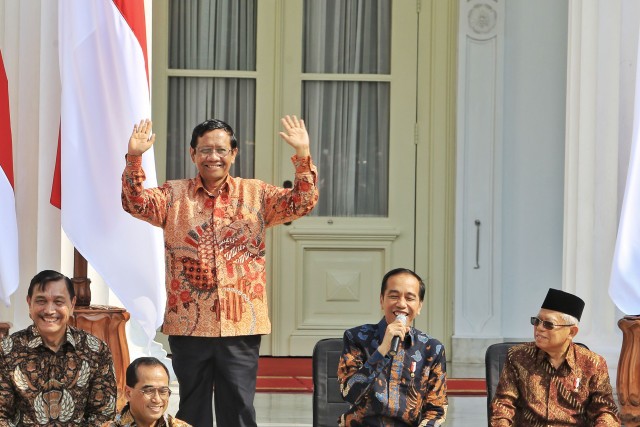Popular Reads
Top Results
Can't find what you're looking for?
View all search resultsPopular Reads
Top Results
Can't find what you're looking for?
View all search resultsCivil emergency measures will not be implemented to fight COVID-19: Mahfud
Coordinating Political, Legal and Security Minister Mahfud MD said the government would only implement procedures stipulated in the 2018 Health Quarantine Law.
Change text size
Gift Premium Articles
to Anyone
T
he government has stated will not enforce civil emergency measures after President Joko “Jokowi” Widodo announced a public health emergency and signed a government regulation (PP) to impose large-scale social restrictions to curb the spread of COVID-19.
Coordinating Political, Legal and Security Minister Mahfud MD said the government would only implement procedures stipulated in the 2018 Health Quarantine Law. The public health emergency announced by the President is also intended to allow regional administrations to initiate measures stipulated in the law.
The measures outlined in the law, Mahfud said, were sufficient to handle the pandemic.
“Therefore, we will not implement civil emergency measures to combat COVID-19,” Mahfud said on Tuesday evening.
Read also: Turf war undermines COVID-19 fight in Indonesia
Jokowi signed on Tuesday Presidential Decree No. 1/2020 announcing a public health emergency for COVID-19, as well as PP No. 21/2020 to impose large-scale social restrictions to prevent the spread of COVID-19.
The regulations, derived from the Health Quarantine Law, allow regional administrations to initiate regional quarantines with approval from the health minister.
According to the government, seven provincial administrations and 41 cities and regencies have declared public health emergencies because of the pandemic.
Mahfud added that the regulations disproved allegations that the central government and regional administrations were caught in a turf war over the handling of the disease, with many regions having imposed their owns lockdowns before Jakarta issued a decision.
“We coordinate with regional administrations every day,” the minister said.
Read also: Indonesia’s COVID-19 stimulus playbook explained
Although Mahfud claimed that the regulations were sufficient to contain the disease, he argued that civil emergency measures could still be enforced if the outbreak worsened.
The 1959 State Emergency Status Law allows the government to enforce extreme measures to maintain public order if a civil emergency is declared. The measures include confiscating items deemed a threat to national security, wiretapping telephone conversations and prohibiting mass gatherings.
Indonesia had recorded 1,677 confirmed cases, with 157 deaths and 103 recoveries, as of Wednesday.










